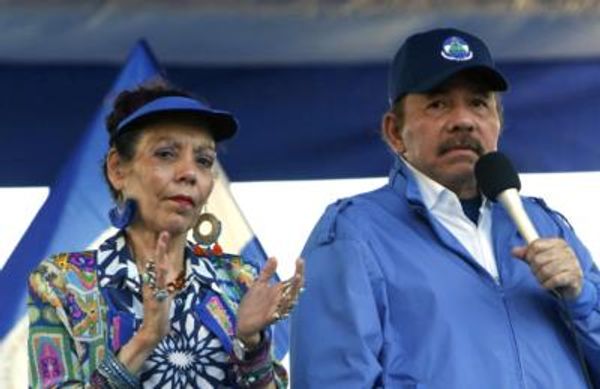
Now that it is dawning on the mainstream media that competition is the crucial issue in the Australian economy — something we’ve been banging on about for years now, and figures like Labor’s Andrew Leigh have been saying for a decade — the right is looking to fix the debate in its interests.
First item on the agenda is to use the support of the gouging monopolist Qantas for the Yes campaign to delegitimise the latter.
“While the public were complaining about late flights, high airfares and poor service, Qantas decided to invest in the Voice Yes case,” trilled buffoon Alex Downer.
“Not only does Qantas instruct the public what to think on same-sex marriage, Israel Folau and the Voice referendum but on every Qantas flight there is a Welcome to Country and/or an acknowledgment of Aboriginal Elders,” whined Greg Sheridan.
“What will be remembered about Joyce is him standing next to the prime minister in front of a Qantas plane with ‘Yes’ written on it,” observed John Roskam.
Confounding this criticism is that the preferred narrative in the US (on which the Australian right so obsessively depends for its content that the conspiracy theories come with left-hand drive) is that woke capitalism doesn’t make money. “Go woke, go broke,” they like to say, when in Qantas’ case it’s very much go woke, make an absolute motza.
Thus the confusion in a bad-even-by-their standards piece in the local version of the Spectator, which argued about Qantas “the central conundrum of Woke Capitalism is its unprofitability. Consumers often hate it. Heavily politicised, it can alienate half a company’s potential customer base — which is a bad move.”
But the bigger issue for the right isn’t this particular front of the endless culture wars, but preventing the diagnosis of the problem posed by Qantas — and, as Crikey alone has pointed out, the big banks, the big audit firms, the casinos, Rio Tinto, fossil fuels, arms manufacturers etc — from leading to a genuinely critical discussion of how Australian capitalism fails to work.
The emerging diagnosis from the right is that Qantas represents “crony capitalism”, and specifically not how the free market economics of the past 30 years is supposed to work. That was the thrust of Roskam’s piece, and one on the weekend by the poor man’s Albrechtsen, Parnell McGuinness.
Admittedly, this is a mistake I myself made in my journey out of neoliberalism, so I can’t be too harsh. But arguing that the problem is crony capitalism and not neoliberalism is the path to arguing — exactly as former Institute of Public Affairs savant Sinclair Davidson did for McGuinness — that the problem is we’re not neoliberal enough.
(A sidenote: that Liberals and IPA alumni like Downer, Roskam and Davidson and their supporters like Sheridan are suddenly complaining about business being too close to government, when that is precisely the management model at the heart of the modern Liberal Party — exchanging political donations and post-public life positions for policy favours — is a lovely irony).
Arguing that we wouldn’t be in this trouble if we had more neoliberalism is the exact right-wing analog of those dead-ender communists who insist communism has never been properly tried — with “state capitalism” playing the role for them that “crony capitalism” is playing now for the right.
What is being ignored in the argument, perhaps wilfully, perhaps in good faith, is that the rise and rise of powerful corporations in concentrated markets exploiting political influence and deliberately weakened regulators to immiserate workers, consumers and the community isn’t a debauchery of neoliberalism, it is an inevitable result of how neoliberalism operates.
As I argued at length in my book The Mess We’re In years ago, the neoliberal project shifts power to corporations away from governments and workers, under the belief that an untrammelled market delivers the best economic outcomes. But in the real world, individual corporations aren’t interested in the best economic outcomes, only the best outcomes for their managers and shareholders.
The result is increasingly concentrated markets (the consequence of the watering down of competition laws, because corporations argue that economies of scale will deliver for consumers, so all mergers and acquisitions should be allowed), governments selling or outsourcing core public policy functions and thus disempowering themselves, allowing corporations to dictate and even implement policy themselves, weakening and curbing regulators, trade unions and other institutions that might hamper corporations’ quest for profits, aided by a media apparatus (itself controlled by large dominant corporations) designed to act as propagandists for corporations.
Qantas, or the Commonwealth Bank exposed by the Hayne royal commission, are the perfect forms of neoliberalism — privatised public corporations providing core services that turned into greedy oligopolists wielding too much political influence and so obsessed with profits they were willing to break the law and treat their customers and workers with contempt. They’re not crony capitalism, they’re neoliberalism in action.
Capitalism tends to oligopoly because investors love companies that are protected from competition. Neoliberalism removes the checks and balances from that tendency. The results are inevitable. And we know market concentration and the dominance of big corporations leads to less investment, less innovation, lower productivity, lower wages and higher inflation.
Not enough neoliberalism? The answer, instead, is a radical agenda of breaking up large corporations, re-regulating them and shifting power back to governments, regulators, workers and consumers.







